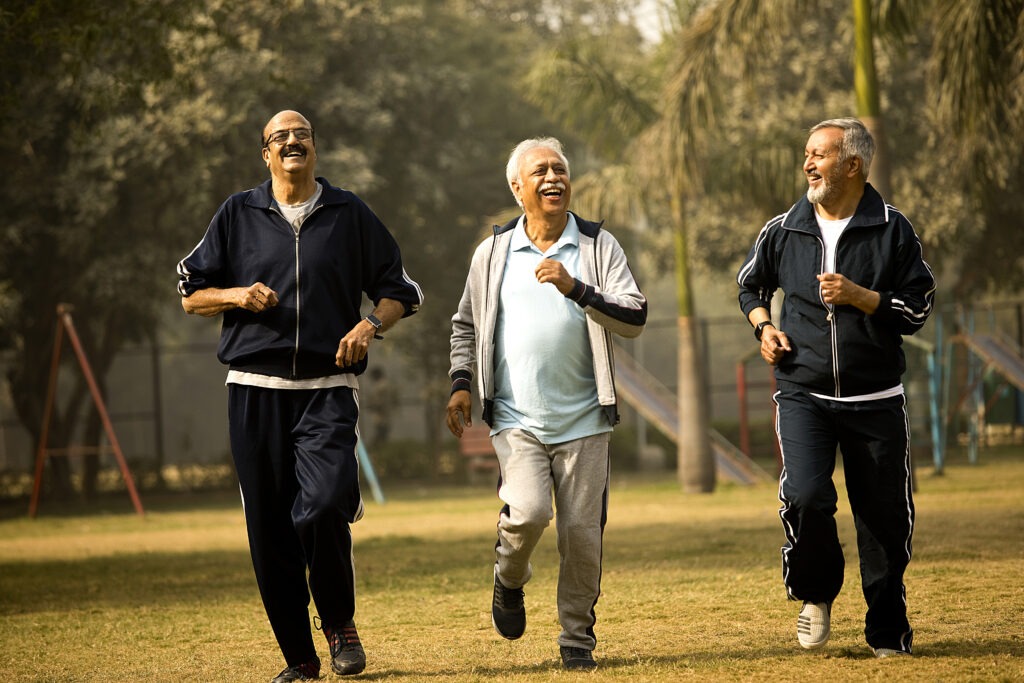Have you been experiencing stiff, creaky joints, especially in the mornings or after periods of inactivity? You might be dealing with osteoarthritis – a common form of arthritis that affects millions worldwide. But don’t worry, you’re not alone on this journey. Let’s dive into what osteoarthritis is, how to identify it, and, most importantly, what you can do about it.
What is Osteoarthritis (or arthritis)?
Osteoarthritis is a degenerative joint disease where the cartilage cushioning your bones gradually wears down. This protective cartilage acts like a shock absorber, allowing smooth, painless movement. But as it deteriorates, bone grinds against bone, leading to joint pain, inflammation, and joint stiffness.
The Telltale Signs of Osteoarthritis
The primary symptoms of osteoarthritis are hard to miss:
• Joint pain that worsens with activity and eases with rest
• Stiffness, especially after periods of inactivity or in the morning
• A creaking or grinding sensation when moving the affected joint(s)
• Limited range of motion as the disease progresses
• Swelling or tenderness in the joint area
If these sound familiar, it’s time to listen to your symptoms and book an appointment with your doctor.
What Causes Osteoarthritis?
Several factors can increase your risk, including:
• Age (cartilage naturally wears down over time)
• Excess weight (added stress on weight-bearing joints)
• Previous joint injuries
• Genetics
• Occupations involving repetitive motions or joint stress
How is Osteoarthritis diagnosed?
If you suspect osteoarthritis, it is best to seek medical guidance for proper diagnosis and treatment.
During this process, you can expect:
• A physical exam to evaluate joint mobility, tenderness, and swelling
• Imaging tests like X-rays, MRIs, or CT scans to visualize cartilage damage
• Blood tests to rule out other conditions like rheumatoid arthritis masquerading as osteoarthritis
How do Functional and Lifestyle Imbalances influence osteoarthritis?
Besides the usual culprits like age and injuries, the way you live your daily life can impact your osteoarthritis. Poor posture, muscle imbalances, and improper movements can put extra strain on your joints, causing that protective cartilage to wear down faster.
But making some lifestyle adjustments can make a big difference. Eating an anti-inflammatory diet packed with goodies like veggies, fruits, fatty fish, and nuts can help calm inflammation and shed extra weight – taking a whole lot of pressure off those achy joints. Getting enough high-quality sleep is also a must for managing pain and keeping inflammation under control.
So what can you do? Correcting your posture, balancing those muscle imbalances through targeted exercises, and practicing proper movement patterns can go a long way. These lifestyle tweaks, along with your diet and sleep upgrades, can take a load off your joints and slow down the progression of osteoarthritis.
How is osteoarthritis treated?
Managing osteoarthritis often requires a multi-pronged approach:
- Medications (over-the-counter or prescription) to ease pain and inflammation
- Physical therapy with targeted exercises to improve flexibility and strength
- Weight management to reduce joint stress
- Assistive devices like canes or braces for added support
- Surgery (joint replacement) for severe, advanced cases
- Lifestyle modifications including diet, sleep, and stress management.
Holistic Healing: An Evidence-based Root Cause Approach
Instead of conventional osteoarthritis treatments, many individuals are exploring holistic approaches to address the underlying root causes of osteoarthritis, believing that treating the root cause can provide longer-lasting relief and potentially slow the progression of the disease. These may include:
• Anti-inflammatory diets: Reducing inflammation through dietary changes, addressing conditions like leaky gut that can help minimize joint pain and swelling.
• Stress management: Chronic stress can contribute to inflammation and exacerbate osteoarthritis symptoms.
• Mind-body practices: Techniques like meditation, yoga, and tai chi can promote relaxation and improve joint mobility.
• Acupuncture: This ancient practice aims to restore energy flow and reduce pain and inflammation.
• Supplementation: Certain supplements like glucosamine, chondroitin, turmeric, omega-3s, vitamin D, and B12 may help reduce inflammation and provide additional support for joint health
If you’re experiencing persistent joint pain, stiffness, or other symptoms disrupting your daily life, don’t brush it off as a normal part of aging. Seeking early osteoarthritis treatment can help manage symptoms, slow osteoarthritis progression, and improve your overall quality of life. For personalized care that considers your whole health and optimizes your physiological processes for effective joint pain relief, you can book a consultation with our doctors at Recoup Health. Through a precise diagnosis, we first uncover the root causes fueling your pain and inflammation and design a care plan that not only gives you effective relief but also enhances your overall well-being.
Remember, osteoarthritis doesn’t mean your life has to be on hold. You can take proactive steps to manage your condition and keep moving comfortably. Whenever you are ready to seek medical guidance, we are here for you!
Unsure whether booking an appointment is the right step for you? We encourage you to drop us a note at connect@recoup.health. We’re here to answer any questions and provide the information you need to make an informed decision about your healthcare journey.




